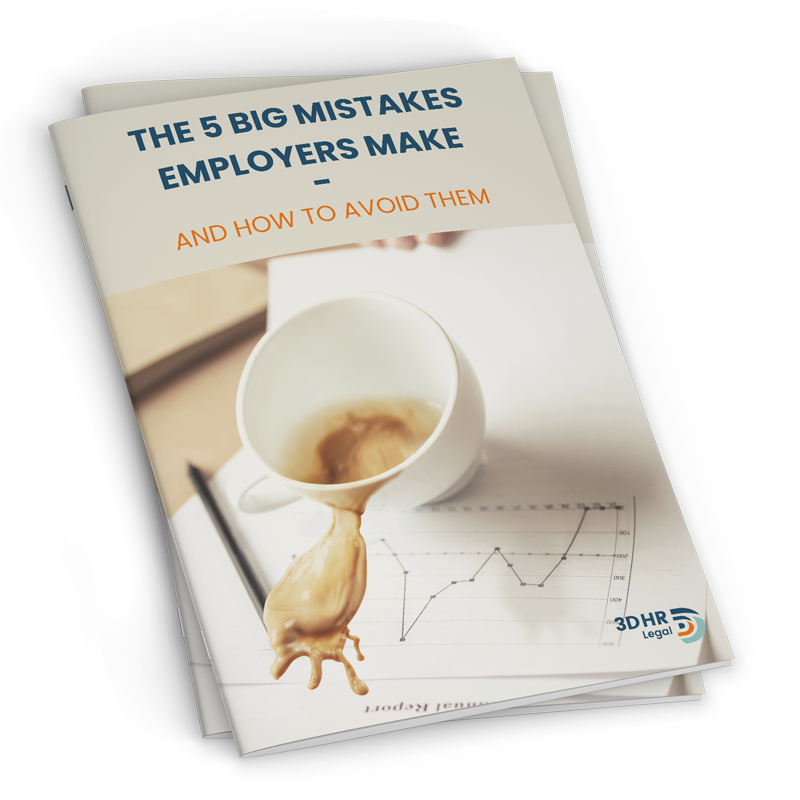Earlier this year a Fair Work Commission (FWC) decision varied the Professional Employees Award 2020 (Award). The decision changes 2 areas of the Award being hours of employment and compensation for extra hours (with effect from 16 September 2023) and coverage of the Award (already in effect).
In short, to avoid the risk of underpayment and breaching the Award, you need to:
– review your staff positions to determine whether they are covered by the Award;
– ensure the rate of pay is at least 25% above the Award rate, or be ready to implement the new overtime/penalty rates and record keeping requirements from September;
– audit your contracts of employment to ensure they meet the Award requirements (and other recent Fair Work Act changes).
Read on for full details of the changes, the potential risks for your organisation, and how to manage them.
Hours of employment and overtime
How is this managed currently?
Currently, employees who work in excess of their ordinary hours are not required to be paid overtime rates, instead the Award requires employees be ‘compensated’ for the extra hours. There is no specific manner of compensation however, it may include setting annual remuneration in respect of all hours of work, granting special additional remuneration, allowances or loadings or providing special additional leave.
What are the proposed changes?
From 16 September 2023 employers will still be able to request employees work reasonable additional hours but these hours will be subject to:
- Payment for overtime;
- Time off in lieu of overtime;
- Penalty rates; and
- Record keeping requirements.
Importantly, these changes will not apply to employees earning 25% above their applicable minimum award rate.
- Payment for overtime
- Time off in lieu
An employee must be paid the appropriate minimum hourly rate for all hours worked in excess of their hours of work. This means hours worked in excess of 38 hours per week for full time employees or the agreed hours for part time employees, must be paid.
These hours must include work performed remotely and on electronic devices and can be averaged over 13 weeks.
2. Time off in lieu
Many modern awards include a standard time off in lieu (TOIL) clause. This standard clause allows an employee and employer to agree for the employee to take time off instead of being paid for overtime.
The agreement for TOIL must be in writing (including emails) and include the number of overtime hours, when the overtime was worked, and that the employee can request payment for these hours at any time.
TOIL is taken equivalent to the number of overtime hours worked (eg: 2 hours overtime = 2 hours TOIL). If TOIL is not taken within 6 months of accruing, it must be paid out at the pay rate applicable to when the overtime was worked.
The Award includes a template agreement for recording TOIL.
3. Penalty Rates
The following penalty rates will apply:
- Hours worked before 6am or after 10pm Monday to Saturday – 125% of the minimum rate (or 150% for casuals);
- Hours worked on a Sunday or public holiday – 150% of the minimum pay rate (or 175% for casuals).
4. Record keeping
The most onerous of the changes requires employers to keep records of the hours an employee works which are considered overtime or attract penalty rates. Specifically, employers will need to record all hours worked by an employee:
- in excess of 38 hours per week;
- Before 6am or after 10pm, Monday to Saturday; or
- On a Sunday or public holiday.
Exclusion
Where an employee’s annual salary is 25% or more above the appropriate minimum under the award the requirements set out above will not apply. These employees can continue to be paid their annual salary covering all hours of work without the need to keep records, apply penalty rates or pay overtime for each hour of work.
Award Coverage
From March 2023 changes were made to the coverage clause in the Award to clarify the existing provisions. The update expressly excludes employees wholly or principally employed in managerial positions from coverage under the Award.
The Award continues to cover employers who have employees performing professional engineering or professional scientific duties, employers in the information technology industry, quality auditing industry or telecommunications services industry, and employers principally engaged as medical research institutes in respect of employees performing professional medical research duties.
The change removes the need to apply the principal purpose test when determining coverage, which does not currently include a classification applicable to managers. The proposed changes go no further than confirming this and do not extend or narrow coverage under the Award.
What can you do to prepare for the Professional Employees Award changes?
Employers with employees covered by this Award should ensure they familiarise themselves with the proposed changes and prepare to ensure compliance. In particular, review the:
- Duties of senior employees to determine if they are excluded from coverage as managers;
- Annual salary of employees to determine if the requirements to pay and record overtime hours and penalty rates will apply;
- Current time recording methods to ensure record keeping compliance; and
- Employment contracts and hours of work to ensure compliance with the Award. This may include using individual flexibility agreements or a common law set off clause in appropriate circumstances.
Don’t forget! Award rates change on 1 July each year. If you are relying on your employee’s salary being 25% over the applicable minimum Award rate, you will need to review this each year when award rates increase.
If you would like assistance to audit your current arrangements for compliance issues, amend your documents or manage the introduction of this change in your workplace operations, contact 3D HR Legal at hello@3dhrlegal.com.au.


Recent Comments